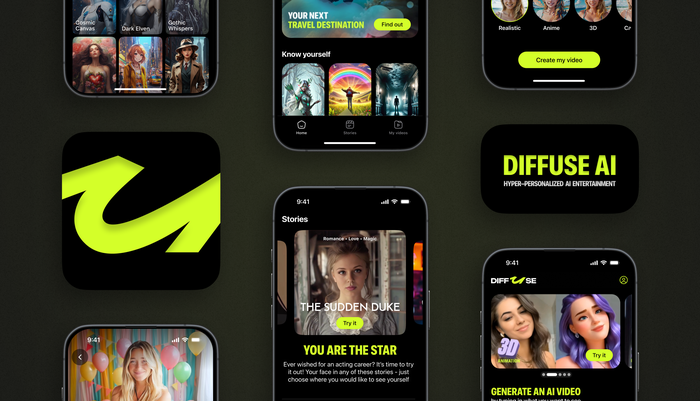Three tips for how technology has helped hospitality soar in the COVID boom

Matt A.V. Chaban
Senior Editor, Transform
As travel booms post-COVID, hospitality leaders are looking to AI and cloud solutions to help meet soaring demand.
For the millions of travelers thronging the world’s airports, beaches, and landmarks, the pandemic might seem like it’s over. For those in the hospitality industry, there’s been less of a vacation from the ups and downs of the past two-plus years. Even though the summer season is winding down, the enthusiasm—and occasional frustration—of traveling remains high nearly everywhere. Consumers are eagerly making up for lost time, companies for lost sales and workers.
To make the most of this moment and build for a different kind of future, hospitality leaders are looking to recalibrate their operations and experiences—and customers’ expectations—as Carrie Tharp, Google Cloud’s vice president of Retail & Consumer industry solutions, discussed during this year’s Cloud Wars Expo.
“First, we had COVID-19 that shut everything down, but we’re all still very aware of the disruptions happening now with the return to work and not having capacity and staffing,” Tharp said. “These dynamics continue to create reverberations through the system for the end consumer and for all of hospitality.”
On one hand, hospitality teams are scrambling to deliver guest experiences with significantly reduced numbers — according to a recent survey by the American Hotel & Lodging Association, 97% of hotels say they are experiencing staffing shortages with nearly half calling it “severe.”
But they are also facing a shift in consumer behavior and expectations in how they want to interact and get information about travel. Google research shows that the average online travel consumer now visits as many as 18 websites across eight sessions on multiple devices when searching on travel before they make their final booking.


“This turns into a lot of micro-moments for hospitality to be influencing that journey, the decision making, and how consumers are deciding where to go and where to stay,” Tharp said. “All of that becomes very important for technology to play a role.”
The potential of cloud services and emerging technologies like AI and ML extends far beyond just using digital capabilities to do more with less people and resources. It’s an opportunity to reinvent everything from guest services to in-room experiences to how customers gather information about a trip and the booking process itself.
So, what does that look like in practice?
Tharp outlined a few key ways leading enterprises are already utilizing technology solutions to help transform their hospitality business:
1. Dig into your data to become guest-centric
Increasingly, many hospitality players are looking to build more direct relationships with customers, rather than relying solely on global distribution systems. To create the foundation for guest centric experiences, building out your customer data platform or implementing pre-built analytics to help understand customers better, track room inventory, and identify trends and dynamics happening in real time within the business and the overall ecosystem is a top priority.
There’s a lot of micro-moments now for hospitality to be influencing consumers’ journeys, their decision making, and how they are deciding where to go and where to stay.
When Royal Caribbean International wanted to gain more direct engagement with its customers, it centralized its fragmented data stack with the help of Google Cloud. The company built custom pipelines to integrate data from the Google Marketing Platform and combine it with first-party data to get a 360-degree view of the customer.
It then uses data-driven dashboards to explore the data, understand what’s happening with customers, and make decisions in real-time to improve its paid marketing efforts. For instance, if a certain customer segment responds to specific inventory or prices, Royal Caribbean can trigger automated activations in the Google Marketing Platform to help capture that demand.
“It’s really a great example of advancing the way they interact with their own consumer data,” Tharp explained. “They’re now doing more bookings on their direct website than they ever did pre-pandemic.”
2. Take your engagement to a more personal level
Hospitality has historically relied on online travel agents and other distribution channels, so how can you pivot to create more direct connections with your customers? It’s really about being there at every step along the customer journey.
Technology is at its best when it can enhance an existing experience that is unique for your business. For example, Hilton Hotels integrated Street View panoramas from the Google Maps Platform directly into their HHonors app experience to allow guests to see the exact view they’ll see from their room during the room selection process.
“Through technology, we're hoping to make it easier for people to find the perfect room, have an unforgettable stay and come back for another adventure,” said Virginia Suliman, VP of Digital Design and Development at Hilton Worldwide.
Upgrading guest experiences could be as straightforward as implementing better search quality on your website or as complex as an AI-powered recommendation engine to offer personalized trip recommendations tailored to a guest’s specific tastes, budget, and travel history. Hosting your ecommerce services and solutions on Google Cloud also enables you to scale to meet any situation or opportunity—from seasonal spikes in holiday travel to unexpected global crises or financial shocks—while maintaining the highest security standards.
3. Remove friction from guest interactions
Today, many guests may enjoy staying in a smart room, where all interactions, from ordering food to talking to guest services, takes place on a tablet or even through voice commands. But how do you deliver consistent, convenient, and responsive service like this without it being human dependent?In the past, hotels relied on people sitting and manning phones in a service center to manage calls and facilitate high levels of service. Now, you can use edge devices and conversational AI to deliver easy requests, freeing up your staff to focus on more complex issues.


At the Equinox Hotel in New York—dubbed “the fittest hotel in the world,” by the Wall Street Journal—guests can stream a series of morning and evening workout and stretching routines from a customized in-room library, which are designed to help them amp up or wind down for the day. All service requests are handled through smart, adaptive tablets that can save profiles and remember preferences, and even provide access to the Equinox+ collective, the company’s digital community for its fitness enthusiasts.
Travel discovery is another area where technology helps remove friction. “Google plays a big role in a lot of travel journeys,” she said. “It’s the natural place people go to search, we have Google Flights capabilities and booking tools we’ve acquired, and we’re helping integrate all those different data sources as well as customer interactions.”
Travelers put in a lot of time and effort into searching when planning a trip, and there’s always opportunity to make this even easier. For example, a mobile conversation channel like Business Messages allows you to answer their questions about your property with potential guests right when and where they’re searching.
Overall, Tharp said that technology should ultimately help provide a better answer plugged into the core hospitality systems and capabilities. Instead of building something new, you should have solutions that allow you to enhance what you have and go after the value in your systems and data in a fast and easy way.
“It’s not about replacing systems you may have had and relied on for a long time, but how do you drive improvement in the actual insights and intelligence around those core processes,” she said. “We find that this accelerates transformation.”



